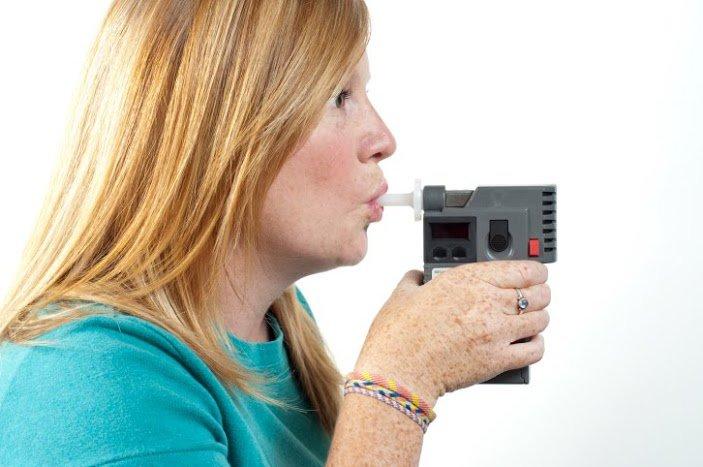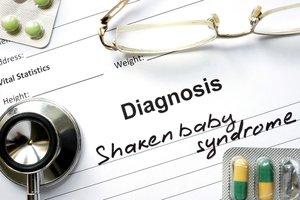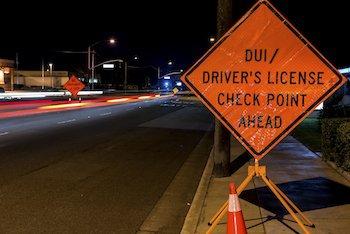Recent Blog Posts
Spray Today, Pay Tomorrow: Penalties for Graffiti in Connecticut
 As long as there has been civilization, there has been graffiti. Whether it is scratching initials into a desk or painting an entire mural on the wall of the local school, people are always looking for new ways to leave their mark on their hometown. However, graffiti is considered a property crime and can lead to serious penalties if police catch you. Budding street artists in Connecticut are finding this out the hard way.
As long as there has been civilization, there has been graffiti. Whether it is scratching initials into a desk or painting an entire mural on the wall of the local school, people are always looking for new ways to leave their mark on their hometown. However, graffiti is considered a property crime and can lead to serious penalties if police catch you. Budding street artists in Connecticut are finding this out the hard way.
Earlier this year, a group of graffiti artists were arrested after their identities were revealed on Instagram. They are now facing possible jail time after defacing property worth upward of $12,000.
The Potential Consequences of a Conviction
Graffiti is classified as criminal mischief in Connecticut, and the penalties vary depending on the seriousness of each case. If you were charged with first-degree criminal mischief, which is considered a felony, it is because:
Drug Paraphernalia Possession Penalties in Connecticut
In Connecticut, if police catch you in possession of an illegal substance, chances are you will face drug charges. These can come with steep fines and even time behind bars. However, many people are not aware that if police arrest you for possessing drug paraphernalia, such as a pipe, you may also face severe penalties.
According to Connecticut law, it is illegal for anyone to be in possession of drug paraphernalia with the intention of using it for any of several listed drug-related purposes, which can range from growing or preparing to ingesting or inhaling controlled substances.
Several items are classified as “paraphernalia,” such as:
- Kits intended to be used for planting, cultivating, growing, propagating, or harvesting marijuana plants or other plants from which a controlled substance can be derived;
- Testing equipment used for analyzing the strength, purity, or effectiveness of a controlled substance;
What to Expect after Failing a Breathalyzer Test in Connecticut
 When most people fail a breathalyzer test, they admit defeat. Many ask, “What is the point of fighting DUI charges?” However, the truth is that these devices can produce false positives if they are not calibrated correctly. In fact, research has shown that breathalyzers have a 40 percent margin of error, according to a report in the Boston Globe.
When most people fail a breathalyzer test, they admit defeat. Many ask, “What is the point of fighting DUI charges?” However, the truth is that these devices can produce false positives if they are not calibrated correctly. In fact, research has shown that breathalyzers have a 40 percent margin of error, according to a report in the Boston Globe.
There have been several cases of false positives. Last year in Connecticut, a DUI case was thrown out of court after DNA tests revealed that the defendant had a BAC of 0.0.
In addition to questioning the breathalyzer results, there are other potential defenses that could work in your favor. For example, your attorney could question whether the officer had probable cause to pull you over in the first place.
Three Frequently Asked Questions about Domestic Violence in Connecticut
 Although each case of domestic abuse is unique, they all have one factor in common: Facing domestic violence charges is one of the most stressful and overwhelming experiences of the defendant’s life. Restraining and protective orders can reflect poorly on your record, and you might even face jail time if convicted. Fortunately, all defendants are innocent until proven guilty, and an experienced domestic abuse attorney can assess your case, explain your rights, and represent your interests in court.
Although each case of domestic abuse is unique, they all have one factor in common: Facing domestic violence charges is one of the most stressful and overwhelming experiences of the defendant’s life. Restraining and protective orders can reflect poorly on your record, and you might even face jail time if convicted. Fortunately, all defendants are innocent until proven guilty, and an experienced domestic abuse attorney can assess your case, explain your rights, and represent your interests in court.
If you are facing domestic violence charges, you probably have many questions and concerns. Here are three FAQs about domestic abuse:
Is There a Difference between Protective and Restraining Orders?
Protective and restraining orders are common solutions for those trying to put a legal barrier between themselves and their alleged abusers. Many are not aware, however, that there are some differences between the two.
Shaken Baby Syndrome: Manslaughter or Homicide
 A case that Stamford police are calling one of the most grim they can remember has ended with a manslaughter plea, according to the Stamford Advocate. A man arrested for the homicide and sexual assault of an infant pleaded guilty to first-degree manslaughter and risk of injury to a child, and is scheduled to be sentenced to 14 years in prison with six years of parole. The baby was a victim of shaken baby syndrome, in which brain damage, retinal damage, and bone fractures can be caused by violent shaking, especially when an infant’s head is whipped back and forth or from side to side.
A case that Stamford police are calling one of the most grim they can remember has ended with a manslaughter plea, according to the Stamford Advocate. A man arrested for the homicide and sexual assault of an infant pleaded guilty to first-degree manslaughter and risk of injury to a child, and is scheduled to be sentenced to 14 years in prison with six years of parole. The baby was a victim of shaken baby syndrome, in which brain damage, retinal damage, and bone fractures can be caused by violent shaking, especially when an infant’s head is whipped back and forth or from side to side.
Shaken Baby Syndrome (SBS) is a diagnosis that first made national news in 1997, when a British au pair was tried for the murder of a Massachusetts infant. As far back as that, a determined group of skeptics started research, unwilling to believe that a human was truly capable of shaking a baby to death.
Online Solicitation and the Consequences
 Many crime shows today revolve around the theme of internet predators. With the popularity of social media, the reality of online solicitation of minors is growing as children and young adults frequently use the Internet and social media in their everyday lives, raising concerns about the potential for sexual predator crimes.
Many crime shows today revolve around the theme of internet predators. With the popularity of social media, the reality of online solicitation of minors is growing as children and young adults frequently use the Internet and social media in their everyday lives, raising concerns about the potential for sexual predator crimes.
In the state of Connecticut, online solicitation of a minor is defined as using a computer service that is interactive to coerce a person less than 16 years of age. If you know that the person you are talking to is under 16, and you attempt to entice them into prostitution or sexual acts, you can be charged with a criminal offense.
Solicitation of a minor is a class D felony in the state of Connecticut. A first offense through a computer network (online solicitation) is a class C felony, and the second offense through a computer network is a class B felony.
Possession or Purchase of Alcohol by a Minor: What You Need to Know
 The problem of underage drinking is rampant everywhere, and Connecticut is no exception. Use of alcohol by minors often leads to the commission of more serious crimes.
The problem of underage drinking is rampant everywhere, and Connecticut is no exception. Use of alcohol by minors often leads to the commission of more serious crimes.
Connecticut law provides stiff penalties for minors who purchase or possess alcohol. In addition to fines and possibly jail time, penalties include driver’s license suspensions or a delay in obtaining a driver’s license.
Alcohol Possession
Possession of alcohol by individuals under the age of 21 is an infraction for which the fine is $200 to $500. The Department of Motor Vehicles will suspend the driver’s license of any minor convicted of alcohol possession for 30 days if the minor possessed alcohol on a public street or highway or 60 days if the minor possessed alcohol in any other public or private location.
Criminal Attorney Tips: Never Underestimate a Misdemeanor
 Most Americans make an honest effort to follow the laws and encourage others to do the same. However, people sometimes make mistakes that can lead to either misdemeanor or felony charges.
Most Americans make an honest effort to follow the laws and encourage others to do the same. However, people sometimes make mistakes that can lead to either misdemeanor or felony charges.
No matter what type of charges you face, the advice of a criminal defense attorney may prove invaluable. Even misdemeanor offenses can remain on your record, which can compromise your employment opportunities and ability to acquire grants for school.
Many people understand that felonies are typically more serious than misdemeanors. Unfortunately, this has led to the misconception that misdemeanor charges are not a big deal. This article will explain why it is important to have a solid legal defense if you are facing misdemeanor charges.
Can I Go to Jail for Committing a Misdemeanor Offense?
Different misdemeanor offenses can vary greatly in terms of the penalties. A class A misdemeanor conviction may come with up to one year in jail, according to the Connecticut General Assembly. Even the lighter charge of a class C misdemeanor can result in one month in jail. In addition to potential jail time, a misdemeanor conviction may result in a fine of up to $2,500.
When Should Parents Contact a Juvenile Defense Attorney?
 When your teen faces charges for illegal actions, a million thoughts can race through your mind. You may wonder how these charges could affect your child’s future, and you likely have questions about effective defense strategies.
When your teen faces charges for illegal actions, a million thoughts can race through your mind. You may wonder how these charges could affect your child’s future, and you likely have questions about effective defense strategies.
Juvenile criminal charges can severely compromise a teen’s opportunities, which is why it is critical that parents consult a juvenile criminal attorney for advice. A lawyer can assess the case and attempt to devise a strong defense strategy that reduces penalties or potentially convinces the court to drop the charges.
According to the Connecticut Judicial Branch, anyone under the age of 18 who has broken a federal or state law will normally be tried for a delinquent act—not for a criminal offense. It is important to keep in mind, however, that there are exceptions to this rule depending on the severity of the crime, especially in regard to major felonies.
4 Myths about DUI Laws
 As is common with many other areas of the law, alcohol-related driving offenses are susceptible to a number of popular myths. Many of these fabrications not only are false, but they also can land you in a lot of trouble if you believe them. All drivers should be aware of the laws of the road, and DUI laws are some of the most important. In order to protect yourself under the law, you should be aware of some of the most popular misconceptions regarding driving under the influence.
As is common with many other areas of the law, alcohol-related driving offenses are susceptible to a number of popular myths. Many of these fabrications not only are false, but they also can land you in a lot of trouble if you believe them. All drivers should be aware of the laws of the road, and DUI laws are some of the most important. In order to protect yourself under the law, you should be aware of some of the most popular misconceptions regarding driving under the influence.
1. There Are Ways to Fool a Breathalyzer
Breathalyzers display an accurate measurement of a driver's blood-alcohol level by analyzing his or her breath. Since police began using these machines, urban myths about fooling them have continued to flourish. These have included everything from brushing your teeth to placing a battery or penny in your mouth. Some people have even suggested that being a smoker decreases the breathalyzer's ability to take a reading. According to Bactrack.com, these are all entirely untrue.







